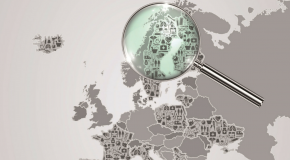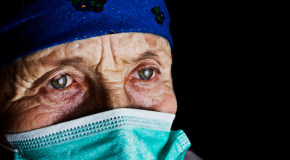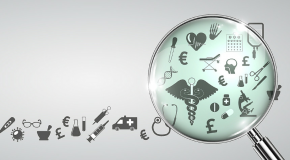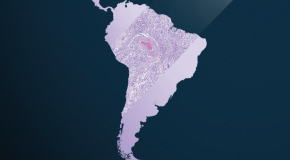Value-based healthcare in Sweden: Reaching the next level
The need to get better value from healthcare investment has never been more important as ageing populations and increasing numbers of people with multiple chronic conditions force governments to make limited financial resources go further.
More from this series
Related content

Value-based healthcare: A global assessment
Introduction
As increasing life expectancy, accompanied by the rise of chronic diseases, pushes up healthcare spending across the world, it has become clear to many policymakers and healthcare providers that a business-as-usual approach to cost containment is no longer sustainable. To continue (or in some cases start) delivering accessible, high-quality care, policymakers increasingly recognise the need to forge a link between healthcare costs and outcomes in order to improve value for patients.
In recent decades, healthcare systems in countries including the UK and US have worked towards measuring the relative cost efficiency and comparative effectiveness of different medical interventions. This approach, known as value-based medicine, followed the development of evidence-based medicine and expanded the concept to include an explicit cost-benefit analysis, with a focus on the value delivered to patients, rather than the traditional model in which payments are made for the volume of services delivered.
Nevertheless, making the shift to VBHC is far from easy, and the majority of countries are still in the early stages of assembling the enabling components for this new approach to healthcare. Implementing the components of VBHC requires a rethink of the overall quality of patient outcomes (and the longer-term benefit relative to the cost of an intervention), rather than just the quantity of treatments delivered. Given the deeply rooted culture of fee-for-service and supply-driven models, in which payments are made for every consultation or treatment, introducing new approaches will take time.
A few “frontier” countries are making impressive advances, with some evidence of the adoption of forward-thinking approaches. For example, the US Centers for Medicare & Medicaid Services (CMS) are in the process of shifting to value-based payments over the next five years through the introduction of bundled payments and other measures.1 In the European Union (EU), a collaborative of hospitals in the Netherlands, Santeon, is measuring patient outcomes using metrics created by the International Consortium for Health Outcomes Measurement (ICHOM),2 and the Organisation for Economic Co-operation and Development (OECD) is also starting to address areas such as payment systems, value in pharmaceutical pricing3 and the efficiency of healthcare delivery and the need for co-ordination of care.
However, many others—particularly lower- income countries, which are facing a range of development challenges—have yet to start out on this journey. With tremendous diversity in healthcare systems worldwide, some countries are bound to face bigger challenges than others in shifting to value-based models. Even for those that have started to make changes, decades- old practices and entrenched interests are difficult to dislodge.
This report summarises our findings in the assessment4 of VBHC alignment in 25 countries. Using indicators such as the existence of a high-level policy or plan for VBHC, the presence of health technology assessment (HTA) organisations or the presence of policies that promote bundled payments (where a single fee covers the anticipated set of procedures needed to treat a patient’s medical condition), this study intends to paint a picture of the enabling environment—from policies and institutions to IT and payments infrastructure—for VBHC alignment across a diverse set of countries.
The results of the analysis reveal a mixed picture, with considerable variations across countries. These range from those where pay-for- performance models and co-ordinated models of care are being introduced to countries where some of the basic tools needed to implement value-based care—from patient registries to HTA organisations—are still not in place.
The challenges are not to be underestimated. In many healthcare systems today, information about the overall costs of care for an individual patient, and how those costs relate to the outcomes achieved, is very difficult to find. As this study will show, health data infrastructure can be improved in most countries.
For example, data in disease registries that track the clinical care and outcomes of a particular patient population are often inaccessible, lack standardisation and/or are not linked to each other, if they exist at all. In some places, attempts to develop electronic health records have floundered. In others, they have been implemented but lack interoperability across different providers, which means that they are of limited use in facilitating co-ordinated, longitudinal care.
However, even in developing countries, adoption of aspects of VBHC can also be found. For example, Colombia’s recent health reforms include plans to organise health delivery into patient focused-units within 16 co-ordinated care programmes.5
By assessing the existence of core components of VBHC across countries, this study provides new insights into the state of the enabling environment for value-based care around the world.
Download whitepaper for further details.

Value-based healthcare in Europe: Laying the foundation
Value-based healthcare looks at health outcomes of treatment relative to cost. In this particular report The EIU examines the way in which value is interpreted across the continent, the extent to which European countries are adopting cost-effectiveness as a key criterion for assessing it, and the efforts to develop new models for pricing innovation.
Further reading:
An introduction to value-based healthcare in Europe Value-based Health Assessment in Italy: A decentralised model Value-based healthcare in Germany: From free price-setting to a regulated market Value-based healthcare in Spain: Regional experimentation in a shared governance setting Value-based healthcare in France: A slow adoption of cost-effectiveness criteria Value-based healthcare in Portugal: Necessity is the mother of invention Value-based healthcare in the UK: A system of trial and error
Value-based healthcare in Japan
Value-based healthcare looks at health outcomes of treatment relative to cost. In this particular report The EIU examines whether Japan's healthcare system delivers good value for money, its approach to pricing and reimbursement, and the evolution of a nascent system for health technology assessment (HTA).
Further reading:
An introduction to value-based healthcare in Europe Value-based Health Assessment in Italy: A decentralised model Value-based healthcare in Germany: From free price-setting to a regulated market Value-based healthcare in Spain: Regional experimentation in a shared governance setting Value-based healthcare in France: A slow adoption of cost-effectiveness criteria Value-based healthcare in Portugal: Necessity is the mother of invention Value-based healthcare in the UK: A system of trial and error Value-based healthcare in Europe: Laying the foundationThe inroads of organised crime in the era of covid-19
Related content

Criminal asset recovery must become governments' central concern
This, in turn, has the effect of further polarising communities and alienating large segments of the population who already feel disenfranchised by an unequal distribution of global resources.
Are we sure there are no less destructive, more socially acceptable alternatives or, as a minimum, some ways to mitigate the impact of unpopular budgetary cuts?
It’s somehow striking that no political party is arguing that a significant contribution to the preservation of social cohesion should come from the recovery of the staggering amount of global wealth stolen through corruption, drug trafficking and other illicit trade that is currently nurturing rampant transnational criminal syndicates. When crime issues feature in electoral campaigns, it is usually to promise more police officers to patrol the streets and increased prison capacity, for example. But crime-control policies need not only represent a burden to state coffers. They can become a wealth-generating strategy if focused, determined and sustained efforts are made to recover stolen criminal assets, well beyond the currently half-hearted efforts.
Estimates by the UN Office on Drugs and Crime put the amount of money laundered globally in one year at 2-5% of global GDP, or US$2trn. To date, investments made in asset recovery efforts are a drop in the ocean. According to Europol, only 1.1% of criminal profits were confiscated in the EU between 2010 and 2014. If this figure were to increase by just a few percentage points, it could translate into a bonanza for national governments, potentially helping to avoid painful cuts to healthcare programmes, pensions for the elderly, subsidies for kindergartens and so on.
I often recall what former Cosa Nostra member Gaspare Mutolo declared in front of the Italian Anti-Mafia Parliamentary Committee back in 1993: “What bothers us most is when they take the money out of our pockets. One prefers to remain in jail with the money rather than being free without the money.”
So, why aren’t genuine, sustained and aggressive efforts being made to “follow the money” as a major path not only to deprive ever-expanding criminal networks of oxygen, but also to recover badly needed resources? After all, this is money that in one way or another has been syphoned from taxpayers’ pockets.
Let’s be fair. Following the money is akin to driving in a thick fog. Financial investigations are time and resource consuming, and fraught with obstacles. They often involve turning to foreign countries for help in tracing assets, freezing bank accounts held abroad and enforcing foreign confiscation orders. And while some authorities may be genuinely willing to assist, including through dedicated asset recovery offices, many are overstretched and not necessarily hoping for the phone to ring. Others are blatantly non-co-operative and pride themselves on their ability to shelter wealth (without asking too many questions about its origin) behind opaque regulations and corporate veils.
Even if investigators eventually succeed in having criminal assets traced, confiscated and turned over, they shouldn’t claim victory too quickly. The Italian experience is instructive. Currently, Italy is at the forefront of global efforts to confiscate criminal assets. Its legislative framework is one of the world’s most advanced and admired. And yet it is proving quite difficult to ensure that the approximately €30bn in assets seized and confiscated from Mafia organisations are effectively allocated for the purposes envisaged by the law: public and social re-use and, as a last resort, sale. Despite recent attempts to streamline procedures, Italy’s nine-year-old Agency for the Management and the Allocation of Seized and Confiscated Assets is still struggling with scarce resources and a Byzantine bureaucracy.
So, mission impossible? Not really. Many countries have already made criminal confiscations easier from a legal point of view, for example, by shifting from prosecutors to defendants the burden to prove that the assets in question are not derived from criminal conduct. Or by enabling authorities to broadly confiscate assets of criminal organisations without the need to establish a connection between those assets and specific criminal offences.
But above all, there seems to be momentum. The public at large, people from all walks of life and political affiliations, are increasingly frustrated at the sheer magnitude of organised crime, exposed by almost daily revelations of massive corruption and money-laundering schemes.
We need a new generation of aspiring politicians willing to invest time and political capital in championing criminal asset recovery as a central pillar of governments’ action. Initially, implementing such a strategy would require steep increases in the number of highly trained financial investigators, investments in big data analytics, and the allocation of significant resources to asset management and cross-border co-operation bodies. But in the medium term, these investments would yield a big payoff. Recovering even just an additional 5% of the globally stolen wealth could make a material difference to the daily lives of a large number of people who are struggling to make ends meet.
The views and opinions expressed in this article are those of the authors and do not necessarily reflect the views of The Economist Intelligence Unit Limited (EIU) or any other member of The Economist Group. The Economist Group (including the EIU) cannot accept any responsibility or liability for reliance by any person on this article or any of the information, opinions or conclusions set out in the article.
The Global Illicit Trade Environment Index 2018
To measure how nations are addressing the issue of illicit trade, the Transnational Alliance to Combat Illicit Trade (TRACIT) has commissioned The Economist Intelligence Unit to produce the Global Illicit Trade Environment Index, which evaluates 84 economies around the world on their structural capability to protect against illicit trade. The global index expands upon an Asia-specific version originally created by The Economist Intelligence Unit in 2016 to score 17 economies in Asia.
View the Interactive Index >> Download workbook

Value-based healthcare in Sweden: Reaching the next level
The need to get better value from healthcare investment has never been more important as ageing populations and increasing numbers of people with multiple chronic conditions force governments to make limited financial resources go further.
These pressures, along with a greater focus on patient-centred care, have raised the profile of VBHC, especially in European healthcare systems. Sweden, with its highly comprehensive and egalitarian healthcare system, has been a leader in implementing VBHC from the beginning, a fact that was underscored in a 2016 global assessment of VBHC published by The Economist Intelligence Unit.
This paper looks at the ways in which Sweden has implemented VBHC, the areas in which it has faced obstacles and the lessons that it can teach other countries and health systems looking to improve the value of their own healthcare investments.
Covid-19 pandemic accelerates the rise of digital payments
Related content

Covid-19: the greatest burden will fall on older people in low- and middle-...
We are living in unprecedented times. The covid-19 pandemic is escalating rapidly with more than 173, 300 confirmed cases and over 7,000 deaths in 152 countries and regions (see Figure 1). The majority of cases and deaths are among people aged 60 years and older living in low- and middle-income countries (LMICs) where healthcare resources to treat people and control the epidemic are limited.
Guidance largely ignores this issue in both high income countries (HICs) and LMICS, the latter of which contain 69% of the global population aged 60 years and over. Their health systems are also weaker, leaving them vulnerable to the worst impacts of covid-19. Limited guidance which is more relevant to HICs has been produced for older people but not for health and social care workers, care homes or day centres. No detailed age-specific data on global cases and mortality has been produced by the World Health Organisation (WHO) even though mortality rates jump sharply in older people, rising from 8% in those aged 70 to 79 years to 15% in those aged 80 and over (see Figure 2 which shows the effect of age on risk of dying from covid-19 from the Chinese outbreak).
In the absence of clear comprehensive guidelines for prevention and control of covid-19 among older people, ad hoc policies are emerging. In Italy scarce hospital and intensive care services are being prioritised for younger, otherwise healthy patients over older patients, according to reports. In the UK, people aged 70 and over will be expected to self-isolate themselves for up to four months in the coming weeks.
In LMICs, older people provide an integral economic and social resource to societies, including bringing up grandchildren to support the labour mobility of their adult children and relatives. Beyond grief and bereavement the implications of covid-19 deaths among the older population will be profound, especially when family members working abroad are unable to return home at short notice.
Increasing numbers of very old people are now being cared for in nursing homes in LMICs. These homes are often unregulated, provide care of very poor quality and may even act as incubators of infection (as do cruise ships, prisons, mines and HIC nursing homes). Outbreaks in LMIC institutions would have serious implications, further underpinning the need for international guidance similar to that issued recently by the International Federation of the Red Cross and Red Crescent Societies, UNICEF and the WHO regarding children and schools.
The ability of health systems to cope with a surge in demand is extremely limited, especially for patients needing intensive care. Health systems in LMICs face severe constraints on capacity at normal times and are unlikely to be able to keep up, especially if the precarious staffing levels—already depleted by migration, low salaries and poor working conditions—and limited gerontological expertise are reduced further by illness. The needs of older people are not being adequately addressed in developing covid-19 policy and practice. Current social distancing policies ignore the precarious existence of many older people and fail to account for the realities faced by those living alone and individuals who are dependent on others. The high levels of illiteracy in LMICs also present a challenge which has yet to be considered in any meaningful way.
An age perspective needs to be explicitly included in the development of national and global planning for covid-19, and it is increasingly clear that a global expert group should be formed to provide support and guidance for older people, home carers, residential facilities and overburdened hospitals in LMICs.
Shah Ebrahim is an honorary professor of public health at the London School of Hygeine & Tropical Medicine. He would like to thank Peter Lloyd- Sherlock, professor of social policy and international development, University of East Anglia; Leon Geffen, Samson Institute for Ageing Research, Cape Town, South Africa; and Martin McKee, professor of European public health, London School of Hygiene & Tropical Medicine, for contributing to this article. The views and opinions expressed in this article are those of the author(s) and do not necessarily reflect the views of The Economist Group or any of its affiliates. The Economist Group cannot accept any responsibility or liability for reliance by any person on this article or any of the information, opinions or conclusions set out in the article.

Beyond Cash: China’s Emerging Payments Market
As China’s economy continues its robust expansion, and as its banking sector finally opens up to foreign competition, the demand for credit is taking off. Local banks have ramped up their operations for the last three or four years in preparation for increased competition from foreign rivals. As their efforts bear fruit, the potential for China’s payment cards market has never looked better.
Nowhere is this more so than in China’s emerging market for debit and credit cards. With more than 200m new cards issued last year alone, China’s total number of plastic cards broke though the one billion mark in 2006, with no sign of the pace abating. While a relatively tiny portion of this total—some 50 million—are currently credit cards, growth rates for the sector (both in terms of spending and transaction volumes) are now much higher than for the mass-market debit cards that form the bulk of cards in circulation. No surprise, then, that foreign banks are now eyeing this space for opportunity.
The main findings of our research are as follows:
Retail banks are very bullish on consumer banking in general—and credit cards in particular... For many of the retail banks surveyed for this report, credit cards are the main priority. When asked what products they believe hold the greatest prospects for China’s personal banking industry, retail bankers were most optimistic about credit cards and bank accounts. Fifty-fivepercent of study respondents believe the prospects for these consumer banking products are ‘highly promising’ over the next three years. Debit cards are seen as the next most promising item (45%), although these are directly linked to the prospects for basic bank accounts, followed by wealth and investment management (40%). In fact, respondents report overwhelmingly positive views for all aspects of the consumer banking sector. ...But the outlook for profits is less certain. When it comes to profits in the credit card market, our survey respondents are less confident. Forty-three percent agree that it would be difficult to make a profit in the credit card market over the next three years, compared with 36% who remain uncertain and just 21% who believe it is possible. The key issue is tough competition for customers between local banks growing their market share and foreign rivals trying to establish a beach head in China. This competition inevitably leads to lower card fees, which keeps earnings low (or negative). In addition, banks are grappling with low rates of revolving credit on cards, resulting from a cultural aversion to accruing debt, together with low fees and interest rates that issuers are allowed to levy on merchants and card users. Infrastructure is key to growth in the cards market. According to the executives surveyed for this report, improving infrastructure – encompassing both merchants and ATMs—will play the biggest role in encouraging the increased acceptance of card payments in China. Fully 83% of retail bankers polled chose this as an essential requirement. This component scores far ahead of any other criteria, for example better collaboration between key stakeholders such as banks and payment processors (48%) or publicity campaigns (33%). When asked what the Chinese market needs to supporta payments infrastructure, half of the survey respondents selected better availability of consumer credit-history data. Merchant acquisition is a major hurdle. Convincing merchants to accept credit cards is a major challenge for banks. Eight out of ten retail bankers polled for this report say that local retailers’ preference for cash is either a ‘very significant’ or ‘significant’ barrier in operating cards and payment services. In part, this is because retailers don’t yet feel much pressure from customers to provide payment card facilities in a society where cash is traditionally preferred. Despite an opening financial market, much risk remains. More than half (53%) of bankers polled for this report selected political risk, relating to policy and regulation, as the biggest existing or potential risk associated with their firm’soperations in China. Retail bankers in particular listed licensing risk (chosen by 43%) as a major concern, second only to political risk, highlighting the difficulties associated with getting permission to expand into new regions or markets. Along with this, 41% of the respondents expressed a general concern about the outlook for China’s banking industry.Much work needs to be done to promote a plastic card payment culture in China. More than anything else, a more extensive card network and infrastructure must be rolled out to promote consumer usage. Along with this, databases of consumers’ credit and transaction histories require expansion. In addition, Chinese consumers must be encouraged to make the switch from cash-based transactions to plastic cards. Despite these challenges, growth is already strong. And in cities such as Beijing, efforts to prepare for the 2008 Summer Olympic Games will help create an environment that supports card payments. Although foreign banks entering the market will have their work cut out, the opportunity is simply too big to ignore.

Value-based healthcare in Sweden: Reaching the next level
The need to get better value from healthcare investment has never been more important as ageing populations and increasing numbers of people with multiple chronic conditions force governments to make limited financial resources go further.
These pressures, along with a greater focus on patient-centred care, have raised the profile of VBHC, especially in European healthcare systems. Sweden, with its highly comprehensive and egalitarian healthcare system, has been a leader in implementing VBHC from the beginning, a fact that was underscored in a 2016 global assessment of VBHC published by The Economist Intelligence Unit.
This paper looks at the ways in which Sweden has implemented VBHC, the areas in which it has faced obstacles and the lessons that it can teach other countries and health systems looking to improve the value of their own healthcare investments.
Related content

Value-based healthcare: A global assessment
Introduction
As increasing life expectancy, accompanied by the rise of chronic diseases, pushes up healthcare spending across the world, it has become clear to many policymakers and healthcare providers that a business-as-usual approach to cost containment is no longer sustainable. To continue (or in some cases start) delivering accessible, high-quality care, policymakers increasingly recognise the need to forge a link between healthcare costs and outcomes in order to improve value for patients.
In recent decades, healthcare systems in countries including the UK and US have worked towards measuring the relative cost efficiency and comparative effectiveness of different medical interventions. This approach, known as value-based medicine, followed the development of evidence-based medicine and expanded the concept to include an explicit cost-benefit analysis, with a focus on the value delivered to patients, rather than the traditional model in which payments are made for the volume of services delivered.
Nevertheless, making the shift to VBHC is far from easy, and the majority of countries are still in the early stages of assembling the enabling components for this new approach to healthcare. Implementing the components of VBHC requires a rethink of the overall quality of patient outcomes (and the longer-term benefit relative to the cost of an intervention), rather than just the quantity of treatments delivered. Given the deeply rooted culture of fee-for-service and supply-driven models, in which payments are made for every consultation or treatment, introducing new approaches will take time.
A few “frontier” countries are making impressive advances, with some evidence of the adoption of forward-thinking approaches. For example, the US Centers for Medicare & Medicaid Services (CMS) are in the process of shifting to value-based payments over the next five years through the introduction of bundled payments and other measures.1 In the European Union (EU), a collaborative of hospitals in the Netherlands, Santeon, is measuring patient outcomes using metrics created by the International Consortium for Health Outcomes Measurement (ICHOM),2 and the Organisation for Economic Co-operation and Development (OECD) is also starting to address areas such as payment systems, value in pharmaceutical pricing3 and the efficiency of healthcare delivery and the need for co-ordination of care.
However, many others—particularly lower- income countries, which are facing a range of development challenges—have yet to start out on this journey. With tremendous diversity in healthcare systems worldwide, some countries are bound to face bigger challenges than others in shifting to value-based models. Even for those that have started to make changes, decades- old practices and entrenched interests are difficult to dislodge.
This report summarises our findings in the assessment4 of VBHC alignment in 25 countries. Using indicators such as the existence of a high-level policy or plan for VBHC, the presence of health technology assessment (HTA) organisations or the presence of policies that promote bundled payments (where a single fee covers the anticipated set of procedures needed to treat a patient’s medical condition), this study intends to paint a picture of the enabling environment—from policies and institutions to IT and payments infrastructure—for VBHC alignment across a diverse set of countries.
The results of the analysis reveal a mixed picture, with considerable variations across countries. These range from those where pay-for- performance models and co-ordinated models of care are being introduced to countries where some of the basic tools needed to implement value-based care—from patient registries to HTA organisations—are still not in place.
The challenges are not to be underestimated. In many healthcare systems today, information about the overall costs of care for an individual patient, and how those costs relate to the outcomes achieved, is very difficult to find. As this study will show, health data infrastructure can be improved in most countries.
For example, data in disease registries that track the clinical care and outcomes of a particular patient population are often inaccessible, lack standardisation and/or are not linked to each other, if they exist at all. In some places, attempts to develop electronic health records have floundered. In others, they have been implemented but lack interoperability across different providers, which means that they are of limited use in facilitating co-ordinated, longitudinal care.
However, even in developing countries, adoption of aspects of VBHC can also be found. For example, Colombia’s recent health reforms include plans to organise health delivery into patient focused-units within 16 co-ordinated care programmes.5
By assessing the existence of core components of VBHC across countries, this study provides new insights into the state of the enabling environment for value-based care around the world.
Download whitepaper for further details.

Value-based healthcare in Europe: Laying the foundation
Value-based healthcare looks at health outcomes of treatment relative to cost. In this particular report The EIU examines the way in which value is interpreted across the continent, the extent to which European countries are adopting cost-effectiveness as a key criterion for assessing it, and the efforts to develop new models for pricing innovation.
Further reading:
An introduction to value-based healthcare in Europe Value-based Health Assessment in Italy: A decentralised model Value-based healthcare in Germany: From free price-setting to a regulated market Value-based healthcare in Spain: Regional experimentation in a shared governance setting Value-based healthcare in France: A slow adoption of cost-effectiveness criteria Value-based healthcare in Portugal: Necessity is the mother of invention Value-based healthcare in the UK: A system of trial and error
Value-based healthcare in Japan
Value-based healthcare looks at health outcomes of treatment relative to cost. In this particular report The EIU examines whether Japan's healthcare system delivers good value for money, its approach to pricing and reimbursement, and the evolution of a nascent system for health technology assessment (HTA).
Further reading:
An introduction to value-based healthcare in Europe Value-based Health Assessment in Italy: A decentralised model Value-based healthcare in Germany: From free price-setting to a regulated market Value-based healthcare in Spain: Regional experimentation in a shared governance setting Value-based healthcare in France: A slow adoption of cost-effectiveness criteria Value-based healthcare in Portugal: Necessity is the mother of invention Value-based healthcare in the UK: A system of trial and error Value-based healthcare in Europe: Laying the foundationValue-based healthcare in Sweden: Reaching the next level
Related content

Value-based healthcare: A global assessment
Introduction
As increasing life expectancy, accompanied by the rise of chronic diseases, pushes up healthcare spending across the world, it has become clear to many policymakers and healthcare providers that a business-as-usual approach to cost containment is no longer sustainable. To continue (or in some cases start) delivering accessible, high-quality care, policymakers increasingly recognise the need to forge a link between healthcare costs and outcomes in order to improve value for patients.
In recent decades, healthcare systems in countries including the UK and US have worked towards measuring the relative cost efficiency and comparative effectiveness of different medical interventions. This approach, known as value-based medicine, followed the development of evidence-based medicine and expanded the concept to include an explicit cost-benefit analysis, with a focus on the value delivered to patients, rather than the traditional model in which payments are made for the volume of services delivered.
Nevertheless, making the shift to VBHC is far from easy, and the majority of countries are still in the early stages of assembling the enabling components for this new approach to healthcare. Implementing the components of VBHC requires a rethink of the overall quality of patient outcomes (and the longer-term benefit relative to the cost of an intervention), rather than just the quantity of treatments delivered. Given the deeply rooted culture of fee-for-service and supply-driven models, in which payments are made for every consultation or treatment, introducing new approaches will take time.
A few “frontier” countries are making impressive advances, with some evidence of the adoption of forward-thinking approaches. For example, the US Centers for Medicare & Medicaid Services (CMS) are in the process of shifting to value-based payments over the next five years through the introduction of bundled payments and other measures.1 In the European Union (EU), a collaborative of hospitals in the Netherlands, Santeon, is measuring patient outcomes using metrics created by the International Consortium for Health Outcomes Measurement (ICHOM),2 and the Organisation for Economic Co-operation and Development (OECD) is also starting to address areas such as payment systems, value in pharmaceutical pricing3 and the efficiency of healthcare delivery and the need for co-ordination of care.
However, many others—particularly lower- income countries, which are facing a range of development challenges—have yet to start out on this journey. With tremendous diversity in healthcare systems worldwide, some countries are bound to face bigger challenges than others in shifting to value-based models. Even for those that have started to make changes, decades- old practices and entrenched interests are difficult to dislodge.
This report summarises our findings in the assessment4 of VBHC alignment in 25 countries. Using indicators such as the existence of a high-level policy or plan for VBHC, the presence of health technology assessment (HTA) organisations or the presence of policies that promote bundled payments (where a single fee covers the anticipated set of procedures needed to treat a patient’s medical condition), this study intends to paint a picture of the enabling environment—from policies and institutions to IT and payments infrastructure—for VBHC alignment across a diverse set of countries.
The results of the analysis reveal a mixed picture, with considerable variations across countries. These range from those where pay-for- performance models and co-ordinated models of care are being introduced to countries where some of the basic tools needed to implement value-based care—from patient registries to HTA organisations—are still not in place.
The challenges are not to be underestimated. In many healthcare systems today, information about the overall costs of care for an individual patient, and how those costs relate to the outcomes achieved, is very difficult to find. As this study will show, health data infrastructure can be improved in most countries.
For example, data in disease registries that track the clinical care and outcomes of a particular patient population are often inaccessible, lack standardisation and/or are not linked to each other, if they exist at all. In some places, attempts to develop electronic health records have floundered. In others, they have been implemented but lack interoperability across different providers, which means that they are of limited use in facilitating co-ordinated, longitudinal care.
However, even in developing countries, adoption of aspects of VBHC can also be found. For example, Colombia’s recent health reforms include plans to organise health delivery into patient focused-units within 16 co-ordinated care programmes.5
By assessing the existence of core components of VBHC across countries, this study provides new insights into the state of the enabling environment for value-based care around the world.
Download whitepaper for further details.

Value-based healthcare in Europe: Laying the foundation
Value-based healthcare looks at health outcomes of treatment relative to cost. In this particular report The EIU examines the way in which value is interpreted across the continent, the extent to which European countries are adopting cost-effectiveness as a key criterion for assessing it, and the efforts to develop new models for pricing innovation.
Further reading:
An introduction to value-based healthcare in Europe Value-based Health Assessment in Italy: A decentralised model Value-based healthcare in Germany: From free price-setting to a regulated market Value-based healthcare in Spain: Regional experimentation in a shared governance setting Value-based healthcare in France: A slow adoption of cost-effectiveness criteria Value-based healthcare in Portugal: Necessity is the mother of invention Value-based healthcare in the UK: A system of trial and error
Value-based healthcare in Japan
Value-based healthcare looks at health outcomes of treatment relative to cost. In this particular report The EIU examines whether Japan's healthcare system delivers good value for money, its approach to pricing and reimbursement, and the evolution of a nascent system for health technology assessment (HTA).
Further reading:
An introduction to value-based healthcare in Europe Value-based Health Assessment in Italy: A decentralised model Value-based healthcare in Germany: From free price-setting to a regulated market Value-based healthcare in Spain: Regional experimentation in a shared governance setting Value-based healthcare in France: A slow adoption of cost-effectiveness criteria Value-based healthcare in Portugal: Necessity is the mother of invention Value-based healthcare in the UK: A system of trial and error Value-based healthcare in Europe: Laying the foundationValue-based healthcare: A global assessment
Explore the full value-based healthcare hub here: http://vbhcglobalassessment.eiu.com/.
Introduction
Related content

Value-based healthcare in Sweden: Reaching the next level
The need to get better value from healthcare investment has never been more important as ageing populations and increasing numbers of people with multiple chronic conditions force governments to make limited financial resources go further.
These pressures, along with a greater focus on patient-centred care, have raised the profile of VBHC, especially in European healthcare systems. Sweden, with its highly comprehensive and egalitarian healthcare system, has been a leader in implementing VBHC from the beginning, a fact that was underscored in a 2016 global assessment of VBHC published by The Economist Intelligence Unit.
This paper looks at the ways in which Sweden has implemented VBHC, the areas in which it has faced obstacles and the lessons that it can teach other countries and health systems looking to improve the value of their own healthcare investments.

Breast cancer patients and survivors in the Asia-Pacific workforce
With more older women also working, how will the rising trend of breast cancer survivorship manifest in workplace policies, practices and culture? What challenges do breast cancer survivors face when trying to reintegrate into the workforce, or to continue working during treatment? How can governments, companies and society at large play a constructive role?
This series of reports looks at the situation for breast cancer survivors in Australia, New Zealand and South Korea. It finds that while progress has been made, more needs to be done, particularly in South Korea, where public stigma around cancer remains high.
The Cost of Silence
Cardiovascular diseases levy a substantial financial toll on individuals, their households and the public finances. These include the costs of hospital treatment, long-term disease management and recurring incidence of heart attacks and stroke. They also include the costs of functional impairment and knock-on costs as families may lose breadwinners or have to withdraw other family members from the workforce to care for a CVD patient. Governments also lose tax revenue due to early retirement and mortality, and can be forced to reallocate public finances from other budgets to maintain an accessible healthcare system in the face of rising costs.
As such, there is a need for more awareness of the ways in which people should actively work to reduce their CVD risk. There is also a need for more primary and secondary preventative support from health agencies, policymakers and nongovernmental groups.
To inform the decisions and strategies of these stakeholders, The Economist Intelligence Unit and EIU Healthcare, its healthcare subsidiary, have conducted a study of the prevalence and costs of the top four modifiable risk factors that contribute to CVDs across the Asian markets of China, Australia, Hong Kong, Japan, Singapore, South Korea, Taiwan and Thailand.
Download the report to learn more.
The Next Pandemic?
This report is based on extensive data analysis and desk research, complemented by five in-depth interviews with experts on NCDs. The main findings of the research are as follows.
Related content

Value-based healthcare in Sweden: Reaching the next level
The need to get better value from healthcare investment has never been more important as ageing populations and increasing numbers of people with multiple chronic conditions force governments to make limited financial resources go further.
These pressures, along with a greater focus on patient-centred care, have raised the profile of VBHC, especially in European healthcare systems. Sweden, with its highly comprehensive and egalitarian healthcare system, has been a leader in implementing VBHC from the beginning, a fact that was underscored in a 2016 global assessment of VBHC published by The Economist Intelligence Unit.
This paper looks at the ways in which Sweden has implemented VBHC, the areas in which it has faced obstacles and the lessons that it can teach other countries and health systems looking to improve the value of their own healthcare investments.

Breast cancer patients and survivors in the Asia-Pacific workforce
With more older women also working, how will the rising trend of breast cancer survivorship manifest in workplace policies, practices and culture? What challenges do breast cancer survivors face when trying to reintegrate into the workforce, or to continue working during treatment? How can governments, companies and society at large play a constructive role?
This series of reports looks at the situation for breast cancer survivors in Australia, New Zealand and South Korea. It finds that while progress has been made, more needs to be done, particularly in South Korea, where public stigma around cancer remains high.
The Cost of Silence
Cardiovascular diseases levy a substantial financial toll on individuals, their households and the public finances. These include the costs of hospital treatment, long-term disease management and recurring incidence of heart attacks and stroke. They also include the costs of functional impairment and knock-on costs as families may lose breadwinners or have to withdraw other family members from the workforce to care for a CVD patient. Governments also lose tax revenue due to early retirement and mortality, and can be forced to reallocate public finances from other budgets to maintain an accessible healthcare system in the face of rising costs.
As such, there is a need for more awareness of the ways in which people should actively work to reduce their CVD risk. There is also a need for more primary and secondary preventative support from health agencies, policymakers and nongovernmental groups.
To inform the decisions and strategies of these stakeholders, The Economist Intelligence Unit and EIU Healthcare, its healthcare subsidiary, have conducted a study of the prevalence and costs of the top four modifiable risk factors that contribute to CVDs across the Asian markets of China, Australia, Hong Kong, Japan, Singapore, South Korea, Taiwan and Thailand.
Download the report to learn more.
Value-based healthcare in Korea: A pioneer in Asia
Korea’s healthcare infrastructure is well developed compared to that of neighbouring countries. In addition, cost-effectiveness is well established as one aspect of the process used to analyse healthcare value for money. However, a consistent understanding of what value entails is still not established.
Moreover, given its relatively low level of health spending compared with that of other developed countries, Korea has scope to increase health spending. At the same time, with Korea’s population ageing at a similar rate to those of its peers, stark choices lie ahead.
Related content

Value-based healthcare in Taiwan: Towards a leadership role in Asia
A value-based approach to healthcare is gradually gaining traction in Taiwan, as the country’s healthcare system confronts the opportunities and pressures of innovative new medical treatments along with a growing burden of both chronic and infectious diseases.
Any efforts to move Taiwan along in the process of establishing value measures will need to look at several key issues that have an impact on the future course of value-based healthcare: how the country’s healthcare decision-making institutions interpret value; who the main stakeholders with an input into the decision-making process are and should be; and what aspects of healthcare can logistically be evaluated within a value-based framework. In addition, experts say the health system will need to find ways to use its health technology assessment (HTA) capabilities to identify low-value areas where it is prudent to reduce investment in order to free up resources for more cost-effective expenditures. This process will require a more integrated use of HTA to evaluate not only medical treatments and devices, but entire care pathways.
Read the report in English | 繁體中文
Value-based healthcare in Japan
Value-based healthcare looks at health outcomes of treatment relative to cost. In this particular report The EIU examines whether Japan's healthcare system delivers good value for money, its approach to pricing and reimbursement, and the evolution of a nascent system for health technology assessment (HTA).
Further reading:
An introduction to value-based healthcare in Europe Value-based Health Assessment in Italy: A decentralised model Value-based healthcare in Germany: From free price-setting to a regulated market Value-based healthcare in Spain: Regional experimentation in a shared governance setting Value-based healthcare in France: A slow adoption of cost-effectiveness criteria Value-based healthcare in Portugal: Necessity is the mother of invention Value-based healthcare in the UK: A system of trial and error Value-based healthcare in Europe: Laying the foundation
Value-based healthcare in Europe: Laying the foundation
Value-based healthcare looks at health outcomes of treatment relative to cost. In this particular report The EIU examines the way in which value is interpreted across the continent, the extent to which European countries are adopting cost-effectiveness as a key criterion for assessing it, and the efforts to develop new models for pricing innovation.
Further reading:
An introduction to value-based healthcare in Europe Value-based Health Assessment in Italy: A decentralised model Value-based healthcare in Germany: From free price-setting to a regulated market Value-based healthcare in Spain: Regional experimentation in a shared governance setting Value-based healthcare in France: A slow adoption of cost-effectiveness criteria Value-based healthcare in Portugal: Necessity is the mother of invention Value-based healthcare in the UK: A system of trial and errorValue-based healthcare in Korea: A pioneer in Asia
Korea is one of Asia’s leaders in using value-based analysis to underpin decisions about healthcare expenditure. The country has one of the region’s only comprehensive health insurance systems, which also provides a rich trove of data that analysts can use to help direct spending decisions.
More from this series

white paper
Value-based healthcare in Korea: A pioneer in Asia
Korea’s healthcare infrastructure is well developed compared to that of neighbouring countries. In addition, cost-

white paper
Value-based healthcare in Korea: A pioneer in Asia - Korean
Related content

Value-based healthcare in Taiwan: Towards a leadership role in Asia
A value-based approach to healthcare is gradually gaining traction in Taiwan, as the country’s healthcare system confronts the opportunities and pressures of innovative new medical treatments along with a growing burden of both chronic and infectious diseases.
Any efforts to move Taiwan along in the process of establishing value measures will need to look at several key issues that have an impact on the future course of value-based healthcare: how the country’s healthcare decision-making institutions interpret value; who the main stakeholders with an input into the decision-making process are and should be; and what aspects of healthcare can logistically be evaluated within a value-based framework. In addition, experts say the health system will need to find ways to use its health technology assessment (HTA) capabilities to identify low-value areas where it is prudent to reduce investment in order to free up resources for more cost-effective expenditures. This process will require a more integrated use of HTA to evaluate not only medical treatments and devices, but entire care pathways.
Read the report in English | 繁體中文
An introduction to value-based healthcare in Europe
European governments, like those in other parts of the world, are feeling the strain on their health budgets caused by an ageing population, a rise in the prevalence of chronic conditions and the acceleration of medical innovations that have increased demand for state-of-the-art treatment. As a result, governments are looking to make their money stretch further.
Traditionally, efficiency in healthcare has been interpreted largely in terms of cost reductions. More recently, healthcare policymakers in developed economies have interpreted the notion of value according to the willingness of health systems or individual health providers to follow best clinical practice. Increasingly, however, practitioners are promoting a more holistic, patient-centred understanding of value—one championed by the academics Michael Porter and Elizabeth Olmsted Teisberg, who first coined the term “value-based healthcare" [1] (VBH) to describe outcomes of health treatment relative to cost.
The effort to assess more accurately the value of healthcare investment has extensive implications for patient access, reimbursement of healthcare providers and health outcomes. Yet, the adoption of VBH assumptions in Europe has been piecemeal so far, with large variations in the extent to which European health systems measure patient outcomes, the ways in which they define value and the metrics that they use to do so. Equally, despite the demand for better access to healthcare innovations, the impact of public opinion on health policy varies across the continent.
Efforts to extend the use of VBH models in Europe have fallen short because of a lack of consensus so far about what performance indicators should be used, who to reward and how to quantify the value of incentives to motivate further efficiency. The absence of data on activity, cost and outcomes is particularly lacking in the area of ambulatory and primary-care-based interventions. A more extensive and standardised approach to VBH will require stronger evidence to support treatment and better co-ordination of care.
[1] Porter, M. E., “What is Value in Health Care?”, The New England Journal of Medicine, 363:2477-2481, December 23rd 2010.
Further reading:
Value-based Health Assessment in Italy: A decentralised model Value-based healthcare in Germany: From free price-setting to a regulated market Value-based healthcare in Spain: Regional experimentation in a shared governance setting Value-based healthcare in France: A slow adoption of cost-effectiveness criteria Value-based healthcare in Portugal: Necessity is the mother of invention Value-based healthcare in the UK: A system of trial and error Value-based healthcare in Europe: Laying the foundation
Value-based healthcare in Japan
Value-based healthcare looks at health outcomes of treatment relative to cost. In this particular report The EIU examines whether Japan's healthcare system delivers good value for money, its approach to pricing and reimbursement, and the evolution of a nascent system for health technology assessment (HTA).
Further reading:
An introduction to value-based healthcare in Europe Value-based Health Assessment in Italy: A decentralised model Value-based healthcare in Germany: From free price-setting to a regulated market Value-based healthcare in Spain: Regional experimentation in a shared governance setting Value-based healthcare in France: A slow adoption of cost-effectiveness criteria Value-based healthcare in Portugal: Necessity is the mother of invention Value-based healthcare in the UK: A system of trial and error Value-based healthcare in Europe: Laying the foundationInequality in access to care undermines cancer-control efforts in Latin America
Related content

Cancer control, access and inequality in Latin America: A tale of light and...
The Economist Intelligence Unit has created the Latin America Cancer Control Scorecard (LACCS) to assess cancer-control policies and programmes in 12 Latin American countries. The LACCS shows that a number of countries in the region have put in place or strengthened their National Cancer Control Plans. However, plans are often not sufficiently comprehensive and lack funding. Progress has also been made in rolling out population-based cancer registries in the region, but issues with data quality and coverage persist. Other areas with room for improvement include high rates of late-stage diagnosis, insufficient resources for current and future cancer-care needs, fragmented healthcare systems and inequalities in access to care.

Tackling the burden of prostate cancer in Latin America: The prospects for...
Prostate cancer is placing an ever-growing burden on already strained Latin American healthcare systems, as both the incidence of the disease and mortality rates rise. For the purposes of this report, Latin America encompasses the territory from the northern border of Mexico to the southern tip of South America, including the Caribbean.
Prostate cancer is the leading cause of male cancer-related deaths in the region, and the disease and economic burden is set to rise in tandem with longevity and changes in lifestyle and diet.
Addressing this rapid growth is thus an urgent task, and one that higher-income countries around the world have addressed with some success through patient-centred healthcare. In the US, for example, integrated-care systems have been delivered though accountable care organisations that focus on patient needs.
The World Health Organisation (WHO) says that "integrated people-centred health services means putting the needs of people and communities, not diseases, at the centre of health systems, and empowering people to take charge of their own health".[i] However, integrated and patient-centred healthcare has seen a slow rate of adoption in the Latin America region. This suggests that much work needs to be done to sharpen the focus on respecting and responding to patient needs.
This report draws on findings from an Economist Intelligence Unit study, Assessing the burden of Prostate Cancer in Brazil,[ii] and in-depth interviews with ten experts on cancer care in the region. It assesses current prostate-cancer developments and provides real-world examples from Brazil, Colombia, Costa Rica and Mexico of how institutions are addressing, or failing to address, prostate cancer through a patient-centred approach.
Learn more by downloading our 'Assessing the burden of Prostate Cancer in Brazil' report below.
[i] WHO, WHO Framework on integrated people-centred health services. Available at: http://www.who.int/servicedeliverysafety/areas/people-centred-care/en/
[ii] The Economist Intelligence Unit, Assessing the burden of Prostate Cancer in Brazil, October 2016.

Breast cancer in Asia
The regional rise in age-standardised incidence has been running at four to eight times the global average since the 1990s. Meanwhile, the disease is no longer a concern large of developed countries but has become an increasingly important one in many emerging market states, where it is frequently now the most common form of cancer among females.
This report, Breast Cancer: The challenge and response, written by The Economist Intelligence Unit (EIU) and commissioned by Pfizer, examines the growing health burden of the disease in 10 major Asia-Pacific countries and territories, as well as how health systems are addressing the challenge.
Click here to view: Report | Infographic

